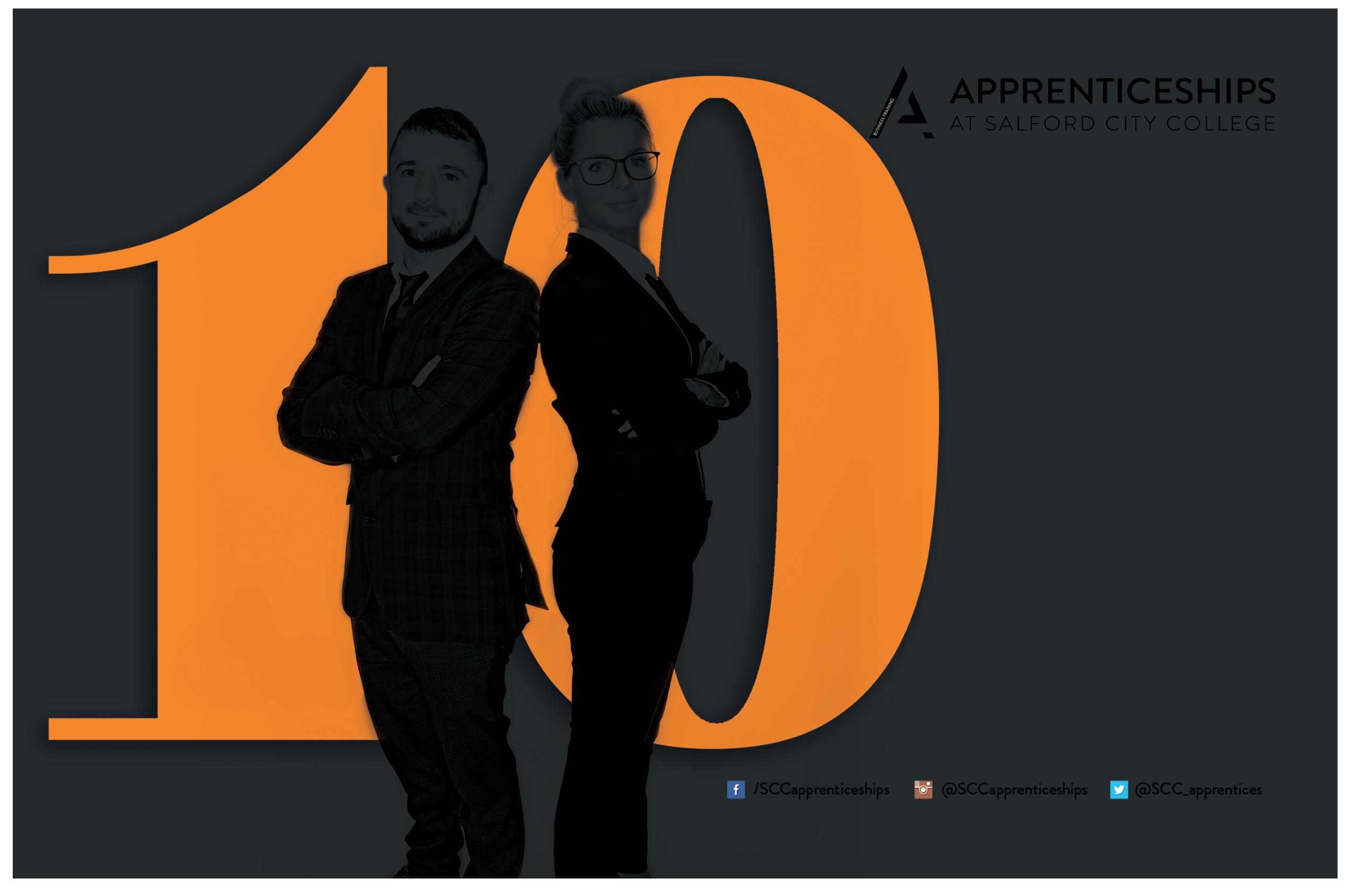
7 minute read
finance
What are considered deductible and non-deductible expenses for business?
Can you claim lunch with a client as a business expense? How do you manage employees’ expense claims? What if you’re self-employed and work from home? There are so many questions around what can and can’t be claimed as expenses by a business, and there have been several requests directed through GMBC magazine for this topic to be covered. In this issue, Les Leavitt, Managing Partner at local accountancy firm LWA, has written a practical article that aims to answer these questions at a top level around business expenses.
The structure of your business
Claiming expenses is ultimately going to reduce your profits and therefore any tax payments due on your profits, however what you can and can’t claim, as well as rules around submitting expenses, can vary depending on how your business is structured. For example, if you’re self-employed, you cannot claim money used for a private purchase as a business expense, whereas if you run a limited company, any item purchased for personal use must be reported as a company benefit. So, it is best to check your specific circumstances with your accountant.
Allowable expenses for business
Below is a brief summary of the main types of expense and what is considered deductible and nondeductible by HMRC. You can use it as a guide to know which receipts you need to record details of and which
Type of Expense
Clothing
Legal and Financial
Office
Marketing
Premises Staff
Stock
Subscriptions
Training courses
Travel
Deductible
Uniforms (costumes for entertainers), safety equipment Professional services such as accountants and solicitors’ fees, PI insurance, bank charges, interest on loans, leasing payments, alternative finance payments e.g. Islamic finance Running costs such as phone bills, stationery and items you’d use less than two years. Computers, printers and other equipment only if you use Cash Basis Accounting Website costs, free samples, direct marketing mailers, advertising Lighting, heating, business rates Employee salaries, subcontractor fees, bonuses, benefits, pensions and NIC payments Raw materials, costs for producing goods, items purchased that you will sell on Journals, membership fees to professional bodies Courses that improve skills and knowledge related to your current work Vehicle insurance, fuel, breakdown and repairs, travel fares, hotel rooms and meals on overnight business trips
Non-Deductible
Everyday clothing, even if you only wear it to work Fines for breaking the law, loan repayments, legal costs of purchasing property and equipment (but you can allocate these to Capital Allowances if you use traditional accounting) If you use traditional accounting, computers, printers and other equipment can be deducted as capital allowance, not as an allowable expense Entertaining or event hospitality Buying a building Help needed in the home such as nannies or cleaners Items for personal use, depreciation Gym membership Courses for starting a new business or expanding your existing business Personal driving or travel costs, fines, commuting between home and work ones you can throw away as you won’t be allowed to claim, for example, that suit you bought for your meeting next week cannot be claimed as Uniform! Items classed as business assets or things you buy to keep and use for your business can be claimed as a capital allowance. Such items include computers, printers, business vehicles and other equipment and machinery.
Simplified Expenses
If you’re a sole trader, simplified expenses may be a better option than trying to work out actual business costs for the areas covered in the above table, where flat rates are used instead. This format of accounting may be more suitable particularly if you work from home or live in your business premises. They’re also considered easier to use when working out business costs for vehicles.
An easier way of logging expenses
If you’re still keeping receipts piled up until you manage to find a few hours spare to record them on your business expenses spreadsheet or accounting software, you might want to consider subscribing to a pre-accounting platform. Receipt Bank helps businesses save valuable hours of time by pulling information from receipts and invoices quickly, accurately and efficiently all by simply taking a photograph with a mobile phone. From the comfort of your own smartphone, whilst waiting for meetings to begin, or whilst on your commute home, you can add receipts and invoices without the need of an office computer. LWA have recently been accredited as Gold Partners with Receipt Bank allowing us to provide FREE unlimited subscriptions to our clients, saving them £25 per month per user. For more information on what can and can’t be claimed as an expense, please visit HMRC’s Business section on their website.

If you’d like support on maximising profits whilst minimising tax on your business accounts, or to learn more about Receipt Bank, speak to a member of the LWA team in Warrington on 01925 830 830 or call our South Manchester office on
0161 905 1801
Les Leavitt
Leavitt Walmsley Associates Chartered Certified Accountants www.lwaltd.com
apprenticeships
A time to celebrate all that is amazing about apprenticeships!

Monday 3rd February is the first day of what is a very important week in the apprenticeship calendar. National Apprenticeship Week is an annual celebration of all that is amazing about apprenticeship programmes. This year, National Apprenticeship Week is even more special for Apprenticeships at Salford City College, as we celebrate our tenth year of delivering apprenticeship programmes. In that period, we have supported over 1,000 employers, and delivered apprenticeship programmes to many local people, with just over 1,500 apprentices supported in the last academic year alone. We were delighted to welcome back into college one of our very first apprentices, Courtney Winstanley, who was one of the first apprentices who started in 2009. She was joined by Ashley Gatto, who was in the same group, who now works for Eccles Sixth Form College (part of the SCC Group) as a Digital & Assistive Technology Leader.
Both Ashley and Courtney have made great strides in their professional career since completing their apprenticeship. Both have also studied further, building on the confidence developed from their apprenticeship. Courtney explained: “There’s such a variety of apprenticeships available right now. It’s not just business administration, construction or
The first ever apprenticeship cohort at Apprenticeships at Salford City College. Courtney Winstanley, top row, second from right. Ashley Gatto, top row, third from left.
health and beauty. They literally do apprenticeships in everything. There’s even management apprenticeships. I’m just a big advocate for them as they have given me such a push in life. I wouldn’t be where I am today without Apprenticeships at Salford City College.” Debbie Ward, Head of Employer Engagement and Resources at Apprenticeships at Salford City College, is delighted to celebrate National Apprenticeship Week this year. She said: “As a college, we have worked incredibly hard to build an apprenticeship function that meets the needs of both local people and employers. Our aim is to deliver apprenticeships which allow local people to develop skills which are needed by employers in the region.” Debbie added: “Feedback from our employers and apprentices is better than ever, I could not be prouder of our apprenticeship team.” Tuesday 4th February sees the return of the annual apprenticeship awards to the college, a flagship event in the National Apprenticeship Week celebrations. Over 40 apprentices and 15 employers from across the region will be recognised by the college, providing a great opportunity to celebrate those most committed to apprenticeships. For more information on Apprenticeships at Salford City College, then contact the team on 0161 631 5000.
TENTEN YEARSYEARS OFOF FANTASTICFANTASTIC
APPRENTICESHIPAPPRENTICESHIP PROVISIONPROVISION




G E T I N T O U C H W I T H U S T O D AY T O F I N D O U T H O W W E C A N H I R E A N A P P R E N T I C E F O R Y O U R B U S I N E S S







